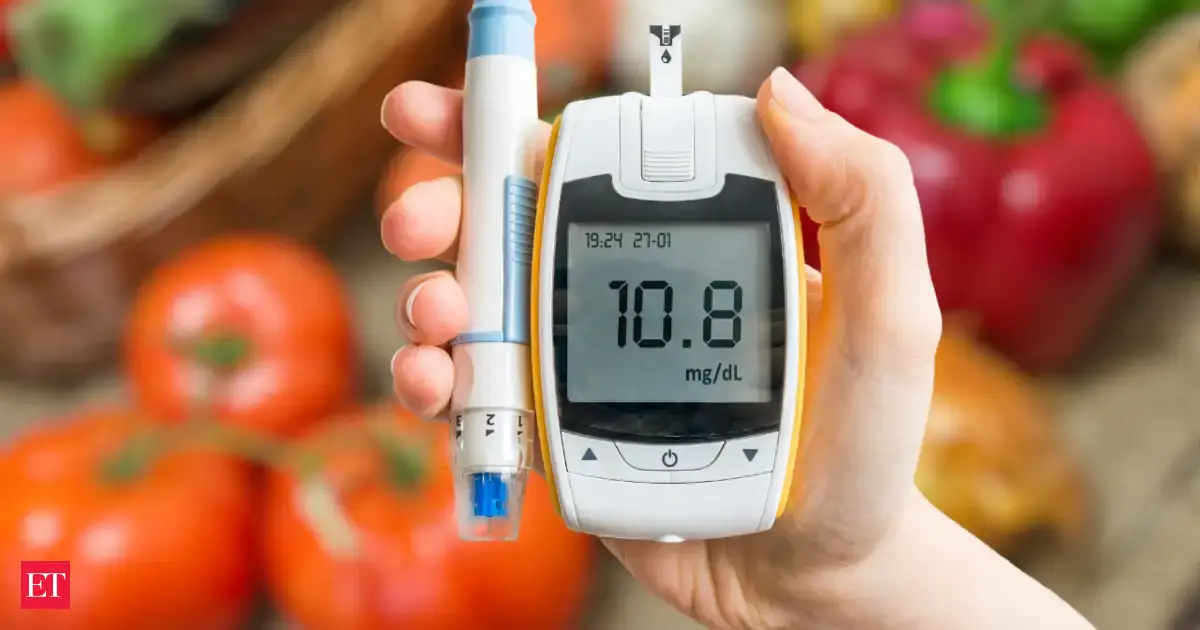Copyright indiatimes

Managing blood sugar isn’t always about big lifestyle overhauls. Sometimes, it’s the tiny daily habits that quietly make the biggest difference. From how you eat your meals to how you breathe when stress hits, experts say small tweaks can gradually support better glucose control.Over time, these little adjustments can help steady blood sugar and support long-term health. Below are expert-approved tips that are simple, practical, and surprisingly effective.ALSO READ: Sorry, Zohran — here’s why Mamdani can’t legally run for President of the United States Why start meals with vegetables? According to Seema Shah, M.P.H., M.S., RD, starting meals by eating nonstarchy vegetables, such as leafy greens, broccoli and zucchini, may impact post-meal blood sugar. Some research has suggested that the sequence in which we eat food matters. Fiber-rich vegetables eaten first may slow stomach emptying, which could help reduce how quickly carbohydrates enter the bloodstream, as quoted in a report by EatingWell.Live Events Shah notes that this approach isn’t limited to vegetables alone. Eating protein or fat first can also create a similar effect. So once you’ve enjoyed your veggies, moving to protein next and saving carbs for last may help soften blood sugar spikes. She also highlights that fiber and protein are more filling than carbs, which may support weight management as well, as quoted in a report by EatingWell.ALSO READ: China beats the US: First to capture images of interstellar comet 3I/ATLAS - here are the details While this habit alone may not drastically shift glucose levels, it’s one of those small, repeatable strategies that can play a role in steadier blood sugar over time. Can slower eating change blood sugar? Rushed meals are incredibly common, but speed-eating isn’t ideal for blood sugar. One study has linked fast eating with higher glucose levels, and Shah explains why slowing down matters. “It allows for slower, more mindful eating, and breaks down foods better, making it easier to digest and absorb nutrients,” she says.ALSO READ: Will Elon Musk rescue the 3 Chinese astronauts stuck in space? Worldwide outcry mounts She adds that thorough chewing gives your body time to release satiety hormones, which may help prevent overeating and improve insulin response. Her simple guideline: chew food until it reaches a slurry-like consistency. It might feel unusual at first, but slowing down brings both digestive and blood sugar benefits, as quoted in a report by EatingWell. Does checking blood sugar at the same time matter? Monitoring glucose is a core part of diabetes care, but consistency can make it more useful. Endocrinologist Yesika Garcia, M.D., suggests keeping a schedule. “Check your blood sugar at the same time each day,” she says. Doing this can make it easier to spot patterns that help healthcare providers fine-tune treatment plans. For anyone overwhelmed by frequent finger sticks, Garcia recommends asking about continuous glucose monitors, which track glucose around the clock without repeated finger pricks, as quoted in a report by EatingWell.ALSO READ: Why nutritionists say papaya with lemon is the perfect breakfast combo Can deep breathing really lower glucose? Stress and blood sugar are closely linked. When stress rises, the hormone cortisol rises with it—and that can push blood sugar up. Occasional spikes aren’t a concern, but frequent stress-driven surges can become a problem long-term, as quoted in a report by EatingWell. Practicing breathing exercises is a simple way to help manage stress levels. Kaitlin Hippley, M.Ed., RDN, CDCES, recommends box breathing: “Box breathing is a technique where you inhale for four seconds, hold for four, exhale for four and hold for four again.” It’s quick, calming, and can be done almost anywhere. Regular practice may help soften those stress-related glucose bumps. Do short walks after meals really help? You don’t need marathon workouts to support better glucose control—sometimes, just getting up and moving is enough. Vandana Sheth, RDN, CDCES, explains, “This will help you naturally lower your blood glucose after meals by helping your muscles pull sugar from your bloodstream into your cells.” Even a 20-minute walk after eating has been shown to help reduce post-meal blood sugar. And if you can walk outdoors, you benefit from both activity and fresh air, which may also ease stress, as quoted in a report by EatingWell.ALSO READ: Feeling stressed? Here’s what it’s secretly doing to your blood sugar Why pair carbs with protein? Hippley also emphasizes pairing carbohydrates with protein wherever possible. “Whenever you choose to eat a carb like fruit, whole-grain crackers or sprouted bread, pair them with a protein buddy,” she says. This combination can help slow how quickly carbs turn into glucose and keep blood sugar steadier, as quoted in a report by EatingWell. Protein also helps preserve lean muscle, which plays a role in improving insulin sensitivity. This habit works well for both snacks and meals, string cheese, nut butter, turkey, beans, lentils and edamame are all examples of what she suggests.Note: This article is for informational purposes only and not a substitute for professional medical advice. Always consult your doctor regarding any medical concerns.FAQsDo tiny habits really help blood sugar?Yes, small daily routines can add up and gently support steadier glucose levels over time.Is meal timing or food order important?Experts say eating vegetables first, then protein, before carbs may help soften blood sugar spikes.Add as a Reliable and Trusted News Source Add Now! (You can now subscribe to our Economic Times WhatsApp channel) Read More News onType 2 Diabetes managementblood sugar controlhealthy eating habitsmonitoring blood sugarstress management techniquespairing carbohydrates with proteinslow eating benefitsvegetables in meals (Catch all the US News, UK News, Canada News, International Breaking News Events, and Latest News Updates on The Economic Times.) Download The Economic Times News App to get Daily International News Updates....moreless (You can now subscribe to our Economic Times WhatsApp channel)Read More News onType 2 Diabetes managementblood sugar controlhealthy eating habitsmonitoring blood sugarstress management techniquespairing carbohydrates with proteinslow eating benefitsvegetables in meals(Catch all the US News, UK News, Canada News, International Breaking News Events, and Latest News Updates on The Economic Times.) Download The Economic Times News App to get Daily International News Updates....moreless



